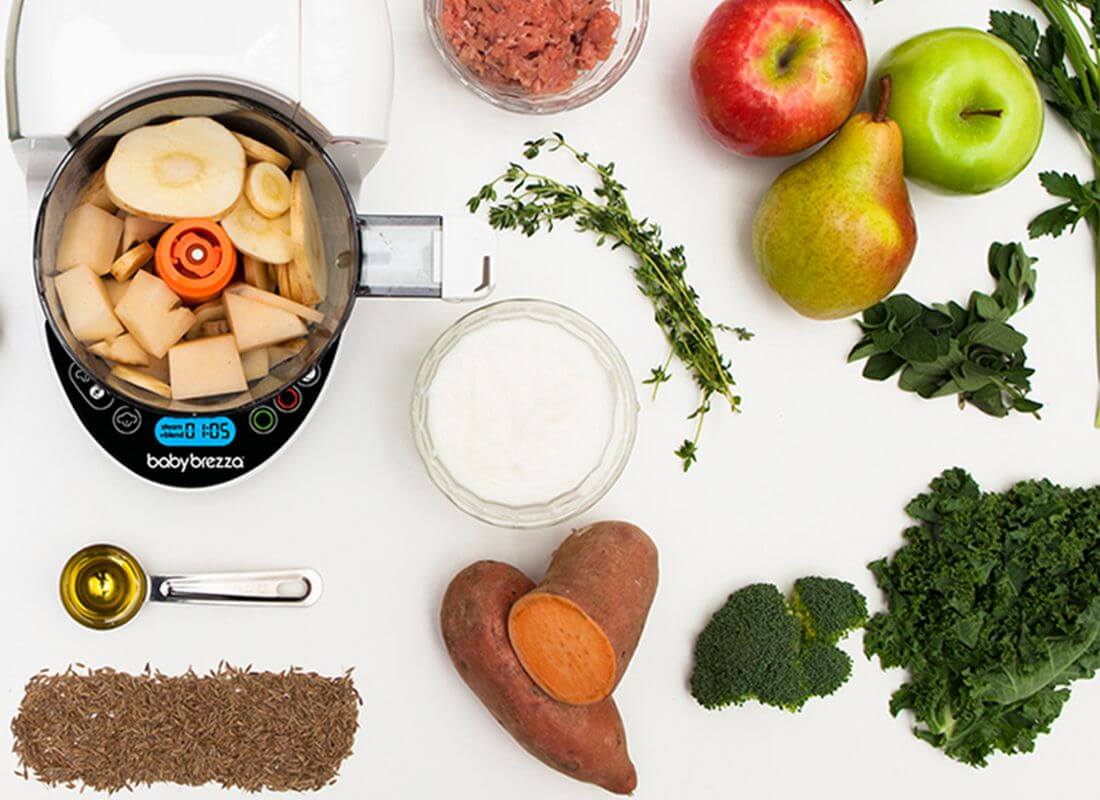
Introducing ‘Baby-friendly’ Herbs and Spices During Weaning
|
|
Time to read 5 min
|
|
Time to read 5 min
When it comes to weaning, there's a common misconception that herbs and spices should be avoided altogether. Many parents assume baby food should be plain and bland, especially in the early stages. However, gently introducing herbs and mild spices can actually support your baby’s development in meaningful ways.
Not only can these natural additions enhance the flavour of your baby’s meals, making food more enjoyable, they may also offer a variety of health benefits. Introducing a range of subtle tastes early on can help expand your baby’s palate, making them more open to different foods as they grow. At the same time, certain herbs and spices contain natural properties that can support wellbeing.
In this blog, we’ll explore how to safely introduce herbs and spices during weaning, how they can naturally enhance the flavour of your baby’s meals, and the potential health benefits they may offer when used appropriately.
Absolutely! Spice’ does not only relate to ‘heat’; there is a vast range of herbs and spices that are perfect for encouraging your child to be an adventurous eater from the get-go. These allow them to expand their palates, anticipate changes with food, and keep them interested in eating, not to mention the various health benefits that these herbs and spices can offer.
Once your baby has moved beyond those early "first tastes" and is showing signs of accepting complementary foods, you can begin gently introducing herbs and spices into their meals. This stage of weaning is the perfect opportunity to start building flavour and variety into their diet in a natural, healthy way.
Start with small amounts — just a tiny pinch is enough. In the beginning, it can be helpful to add herbs and spices to meals served earlier in the day, so you can observe how your baby responds to new flavours. As your little one gets used to different tastes, you can gradually increase the amount over time. Using herbs and spices not only makes meals more enjoyable, but also helps expand your baby’s palate and encourages a positive relationship with food. Just remember, patience is key. It’s completely normal for babies to need multiple exposures before accepting a new flavour.
When preparing baby food, it's best to use ground spices , as they are easier for little tummies to digest. If you're using whole spices, make sure to grind them finely before adding them to food. Also, try to avoid store-bought spice blends, as these often contain added salt, sugar, or other ingredients that aren’t suitable for babies.
Herbs and spices enhance colour, aroma, flavour and sometimes even texture of a food. Each have unique characteristics that create these wonderful qualities in our final dishes. Start gradually by incorporating mild options like cinnamon, ginger, or vanilla into fruit purees and porridges, then progress to herbaceous varieties like basil and mint as your baby grows more accustomed to flavours.
Here is a handy table with some spice and herb suggestions for you to incorporate into your baby’s diet:
Incorporating herbs and spices into a baby's diet provides a range of health benefits due to their rich phytochemical and nutrient profiles. However, they should be consumed as part of a balanced diet rather than relying solely on them for medicinal purposes.
Here are some health benefits associated with specific herbs and spices
Incorporating herbs and spices into your baby’s diet during weaning is a great way to introduce them to a world of flavour from the very beginning. When introduced gradually and thoughtfully, these natural ingredients can help broaden your baby’s palate and make mealtimes more enjoyable. Pay attention to how your little one responds to new tastes, and embrace the process with patience. With time, you’ll be laying the foundation for a healthy and adventurous approach to food.
As you begin experimenting with herbs and spices, having the right equipment can make the process smoother and more enjoyable. The Baby Brezza One Step Food Maker Deluxe is a convenient solution for parents who want to create fresh, flavourful meals at home without the extra fuss.
This all-in-one appliance steams and blends ingredients in a single step, making it easy to prepare customised meals using fresh herbs and spices. Whether you’re pureeing vegetables with a hint of spice or creating a smooth herbal blend for your baby’s first taste of new flavours, the Food Maker helps you control every ingredient that goes into their food.
It's designed with simplicity and time-saving in mind, giving you more flexibility to focus on variety and nutrition — all while introducing your little one to the exciting world of real food, made with love.




